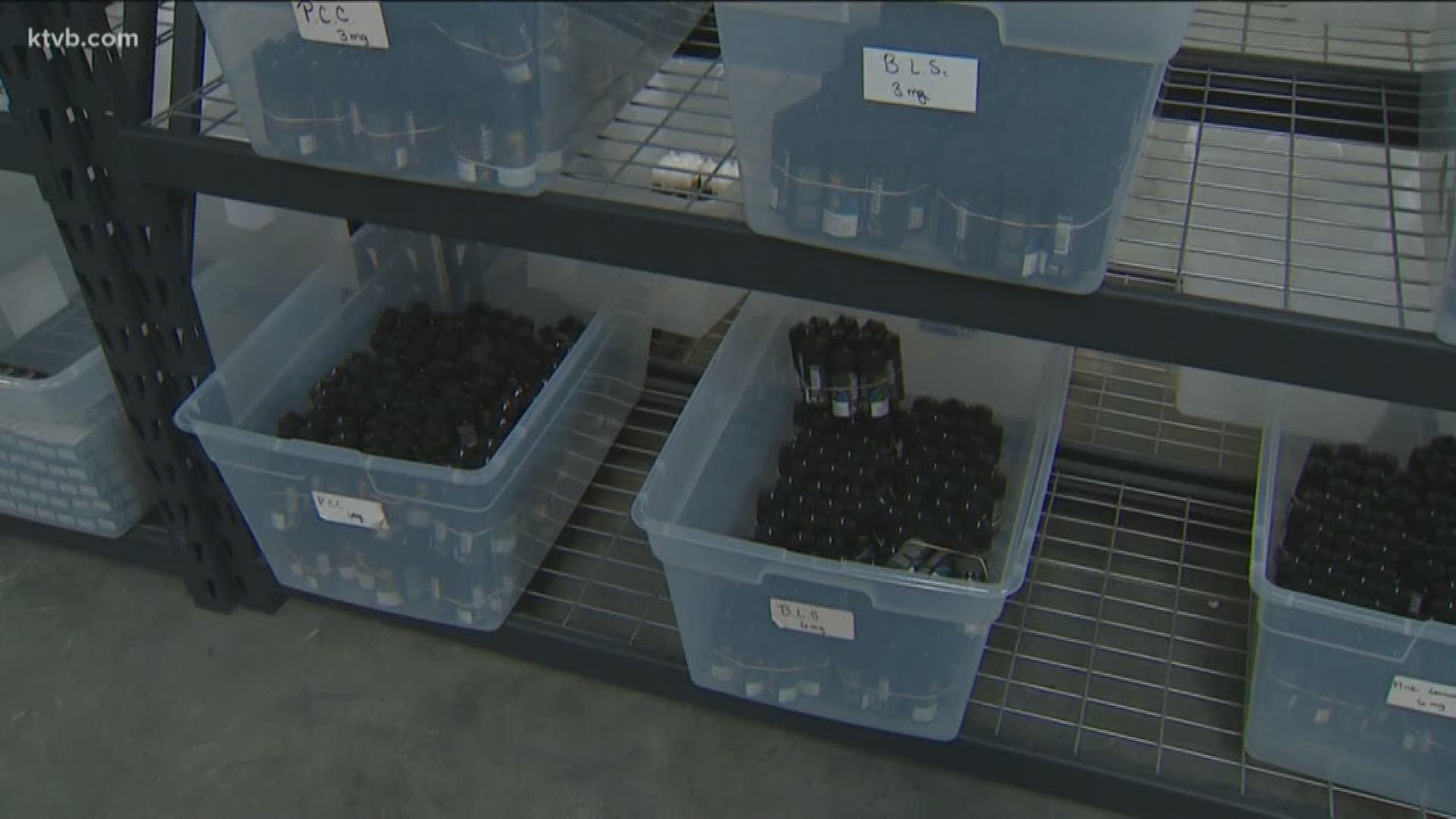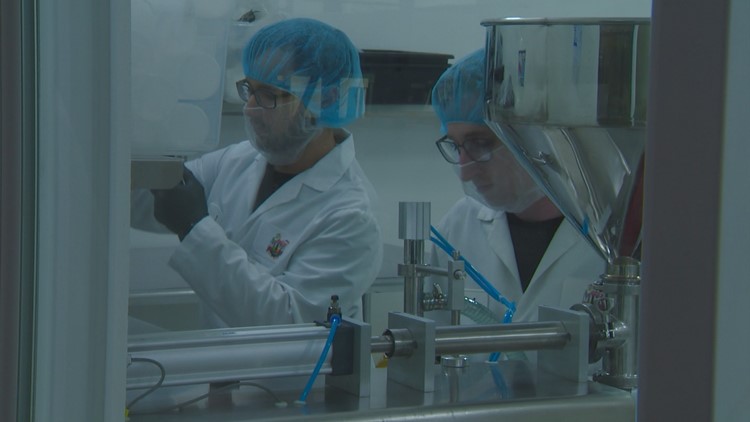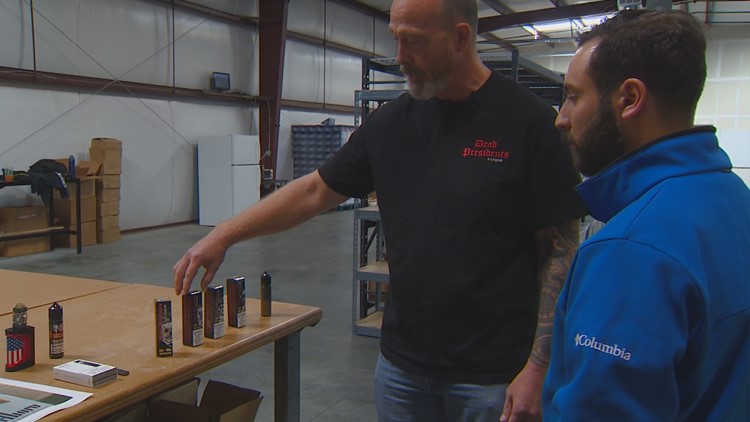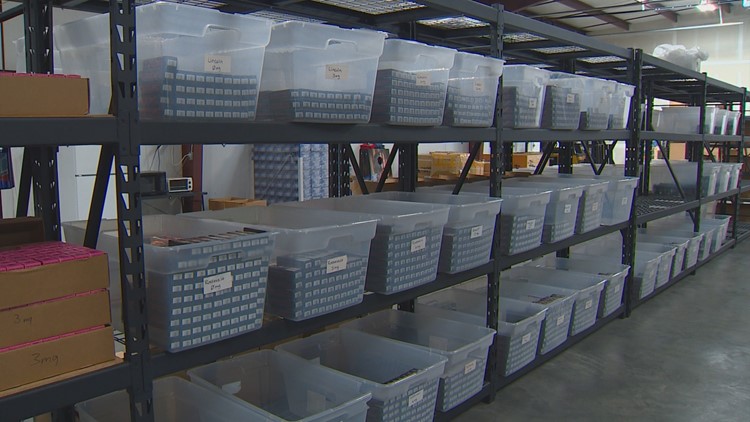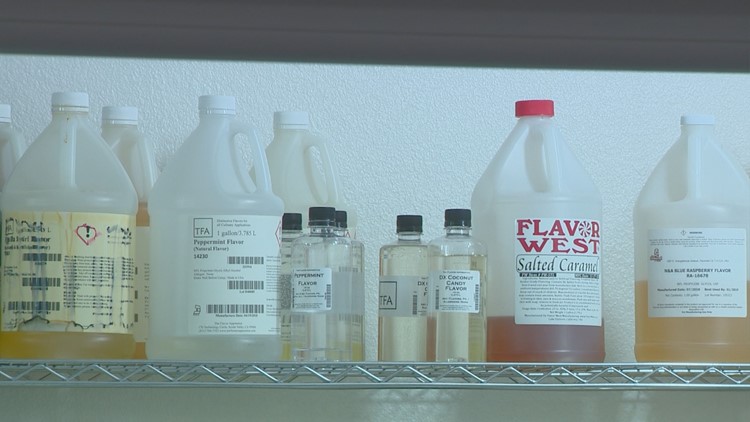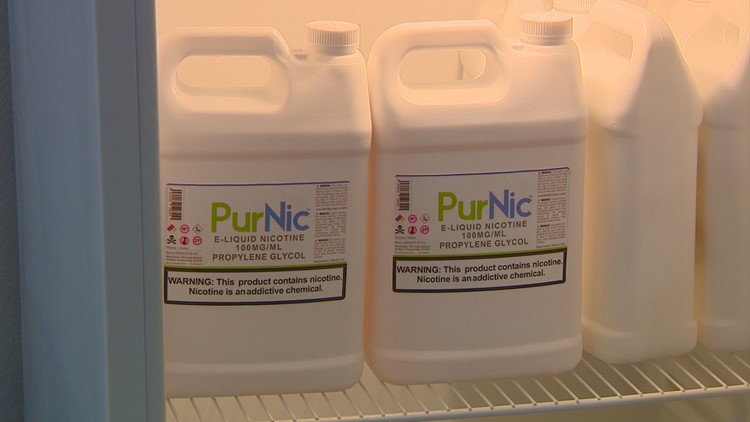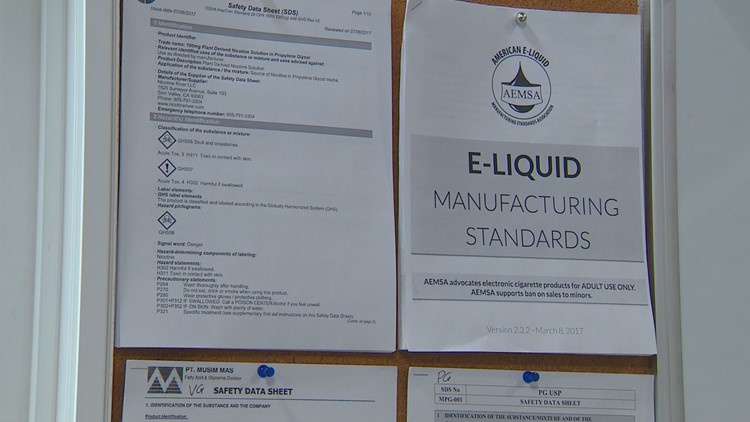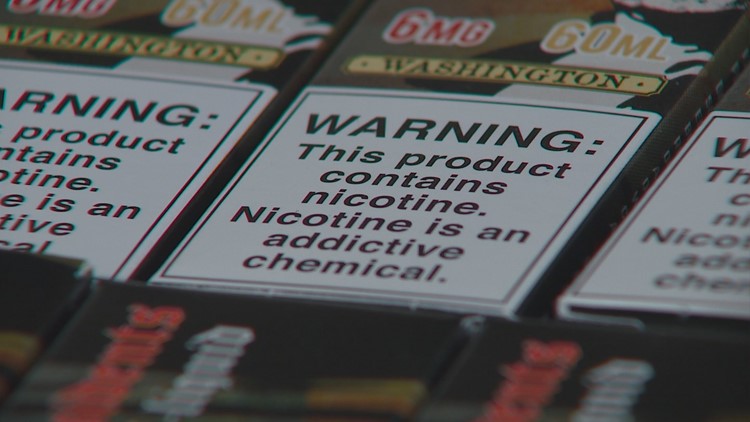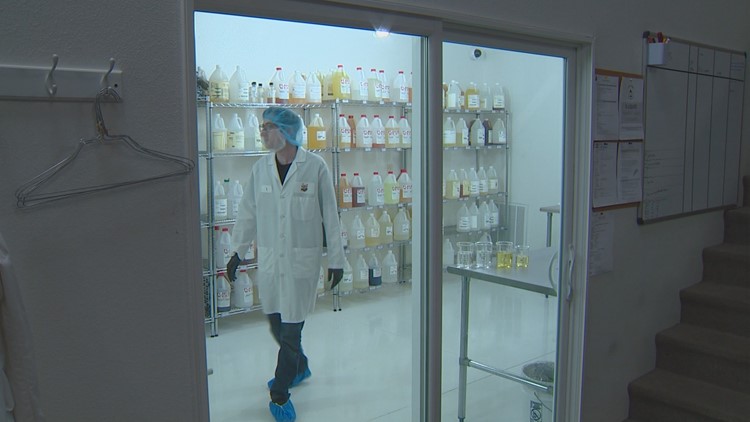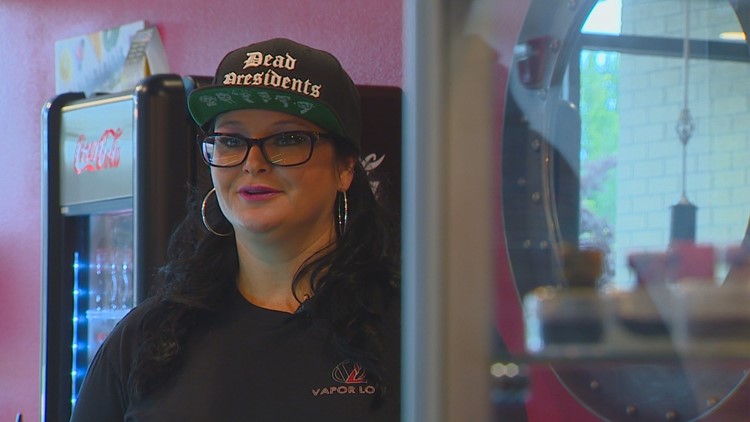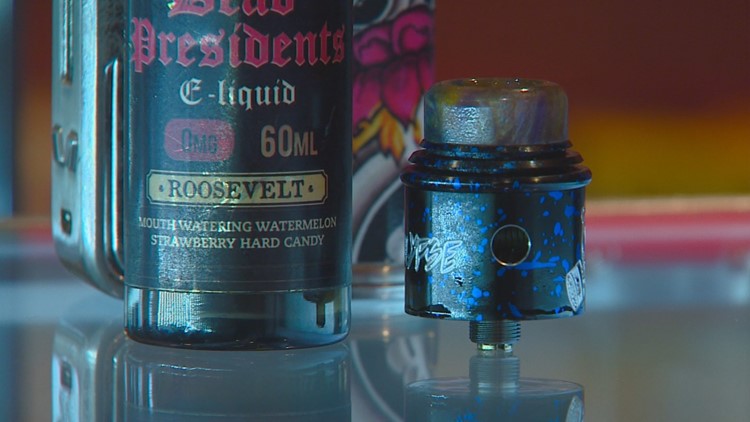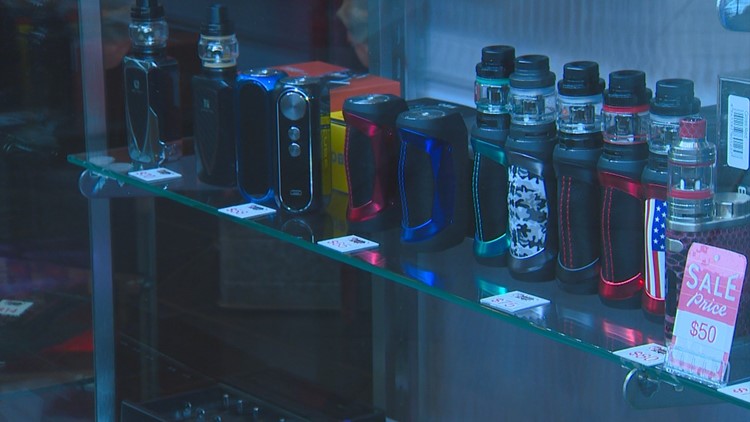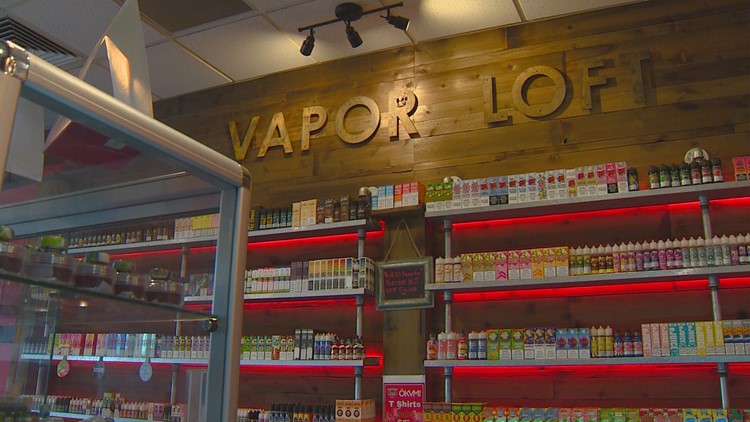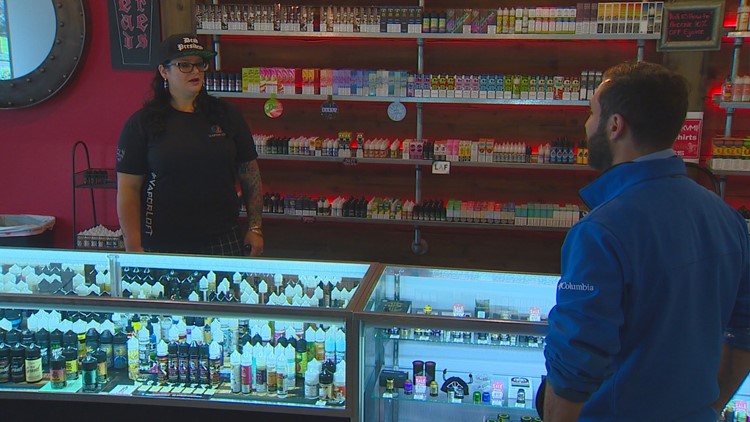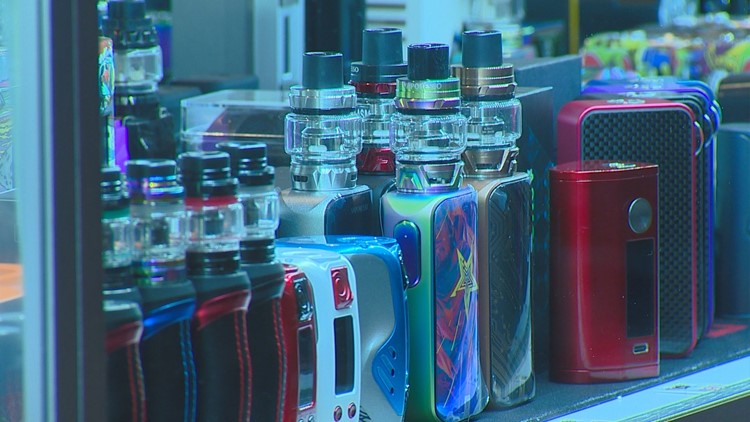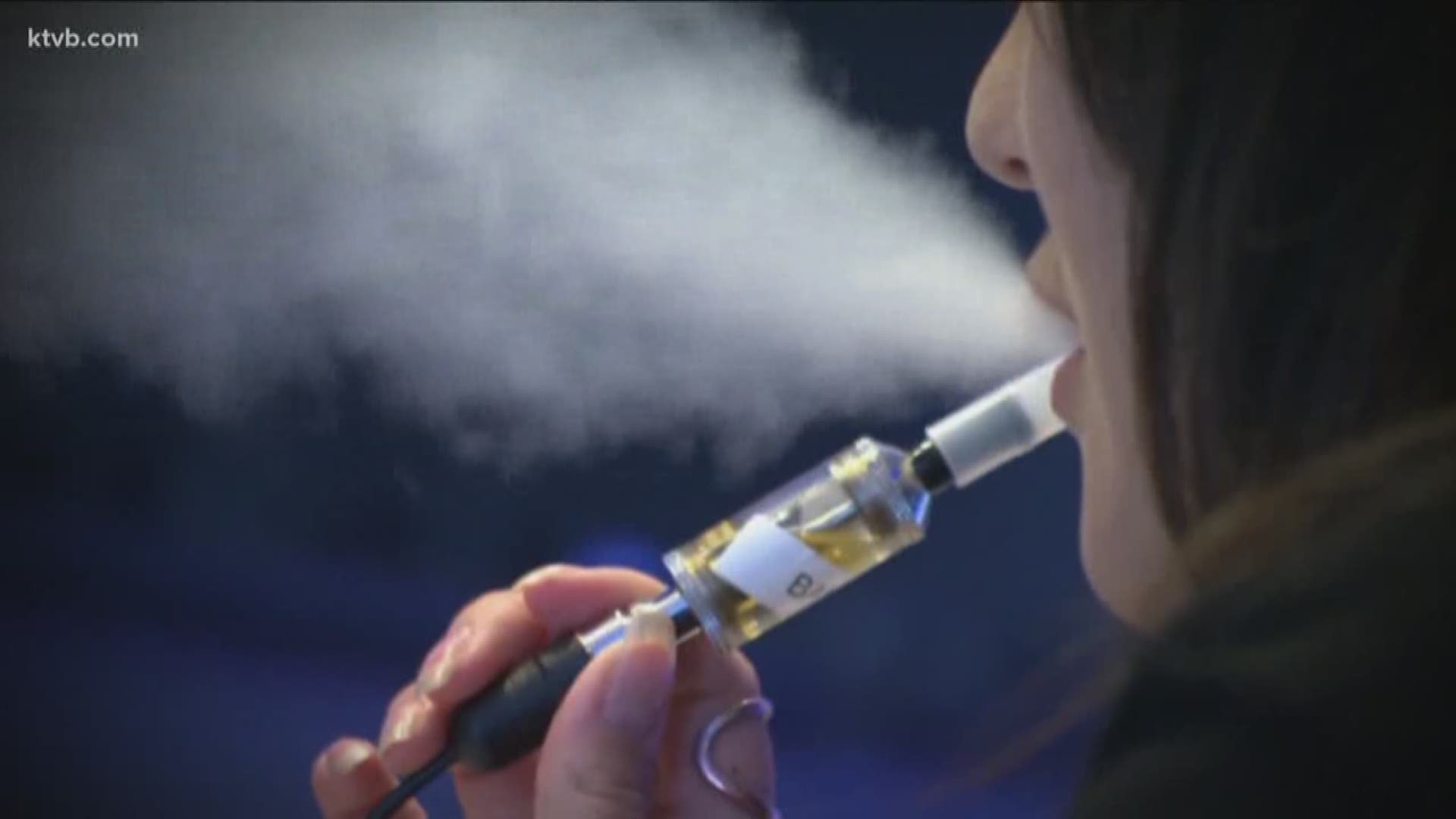CALDWELL, Idaho — Editors note: This is Part One of a three-part series looking at the many sides of vaping. Tune in at the News at Ten Monday and Tuesday for the next in the series, also available at KTVB.COM and the KTVB app.
For Jeremy Forsee, watermelon-flavored e-liquid was the key to kicking cigarettes, a habit that had dogged him for more than two decades.
Now, at 49, Forsee says he has gotten healthy, logged 200 visits to the gym this year, and received a clean bill of health from his doctor.
"I'm healthier than most 21-year-olds I know," he said. "I attribute it to vaping - it saved my life."
Forsee, the co-owner of E-Juice Boulevard in Caldwell, admits he has a stake in the fight over e-cigarettes currently unspooling across the country after a recent, severe rash of vaping-related illness that has sickened hundreds and left more than a dozen dead.
Health officials have struggled to pinpoint a single ingredient or component that is to blame for the surge of illness, but have sounded a dire alarm. Legislation is not far behind: Several cities have placed restrictions on flavored e-liquid they say unfairly draws in young people. The Trump administration has also floated a plan to ban flavored e-cigarettes outright, a prohibition that Forsee says would serve only to push consumers to online black markets where e-liquids may not be subject to testing or regulation, increasing their danger.
"We are under scrutiny, every day, as we should be," he said. "I feel like anything that can cause an addiction should be under scrutiny, but it also needs to be regulated fairly."
Inside a Treasure Valley e-juice factory
Forsee, who runs the manufacturing and e-liquid wholesale operation, said that his company has never received a single complaint about any of their e-liquid making someone sick.
All of their products, which are distributed across the U.S. and to other countries, are made inside the laboratory in Caldwell, which has received an A+ rating from the FDA. Forsee invited KTVB cameras inside the factory for a recent tour, saying he had nothing to hide.
The only ingredients in the e-liquid coming out of his lab are propylene glycol, vegetable glycerin, nicotine and food-grade flavoring.
Forsee blames the vaping-related lung injuries making headlines on black-market cartridges containing THC oils, not traditional nicotine-based vape juice like what he carries. According to The Center for Disease Control, most of the patients treated for vaping-related lung issues report using products with THC or CBD oil, although no single product or substance has been conclusively linked to all of the cases.
Still, Forsee admits that vaping e-liquid is not completely harmless, and discourages young people and those who have not used nicotine before from picking up the habit.
"Vaping isn't safe," he said. "It's not something you should just go out and start doing."
RELATED: 1,600 vaping cartridges with THC, $10,000 in cash, and assault weapons seized by Meridian Police
At Vapor Loft in Boise, where some of the e-liquid ends up on shelves, multiple signs warn that minors are not allowed to purchase. VAPING IS NOT FOR KIDS reads one warning, posted outside the store on a print-out of a bright red stop sign.
Forsee's wife Stacy, who manages Vapor Loft, said the business ended up pulling JUUL products - a high-nicotine, easily concealable type of vaping device popular with teenagers - from their shelves over concerns of them falling into underage hands.
She rejected the much-circulated criticism that e-juice's bright packaging and fruity or dessert-based flavors were designed to draw in young people.
"It's marketing. And we're marketing to the adults who are old enough to purchase these products," she said. "If we have a minor come in here, we're straight up not going to sell to them. There's no way we're going to sell to them."
Her husband agreed, saying the arguments behind a state or federal flavoring ban are misguided.
"If you told me I had to vape a tobacco flavor, why would I?" Forsee asked. "That's what I quit."
Stacy Forsee said their e-liquids can be purchased with varying levels of nicotine - from 12 nic, roughly the same amount as a cigarette, down to zero nicotine. Although federal regulators have not signed off on vaping as a stop-smoking aid she argues that people who wish to quit are able to titrate down their nicotine in steps, eventually eliminating their dependence entirely.
Ultimately, the future of the vaping industry hinges on the next steps in legislation and regulation, meaning the Forsees' livelihood could change drastically at any time. The couple says that for now, they are in a wait-and-see pattern.
But Jeremy Forsee says that despite the increased apprehension about e-cigarettes in the national discourse, he doesn't regret joining the industry.
"I'm actually quite proud of it," he said. "We are working to make a difference."
Tune in to the News at Ten Monday night for Part Two of our series, featuring a professor of pediatrics at Stanford University who spoke to KTVB about the risk vaping poses to young people.

